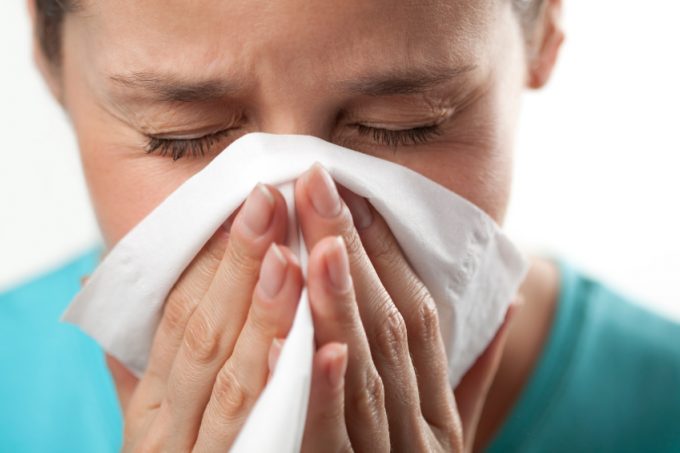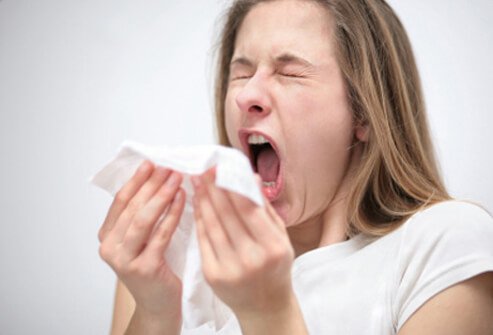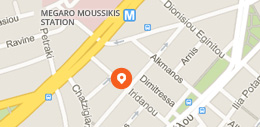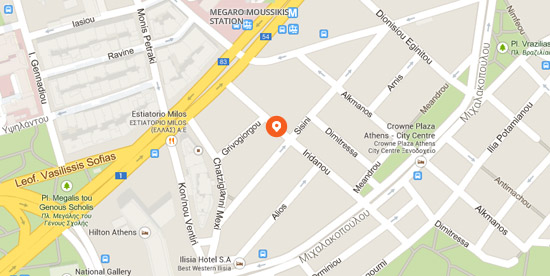Nutrition and the common cold
The cold is caused by several viruses and constitutes an infection of the nose or the throat. More specifically the virus enters via the airways, the sinuses, the nasal cavity or the throat and when inside starts to develop. The body then reacts by producing antibodies and mucus. The virus is destroyed either by the antibodies, or by the stomach acids when we swallow it or excreted with mucus when we blow our noses. The cold is observed in high frequency, especially in children. Actually those aged six or younger are the most vulnerable.
We shall go through what we can do to fortify our immune system and to which degree nutrition can play a role in battling the cold.
For a strong immune system
This part concerns prevention, meaning what can we do before getting sick in order not to.
Despite the fact that a direct link between lifestyle and the functioning of the immune system has not yet been scientifically substantiated, by following fundamental health rules you help your body operate better and by extension your immune system.

Such fundamental rules are the following: don’t smoke, don’t drink alcohol or drink only a little, wash your hands and cook food well to destroy any germs, make sure to get enough sleep, avoid stress, exercise, be mindful of your diet and maintain a healthy level of body weight.
On the other hand certain points deserve special consideration, first among those the issue of the immune system of people of a certain age. The elderly are more likely to contract an infectious disease and also more likely to expire due to it. Although vaccination against the common flu and pneumococcus is not as effective as it is in kids and the younger population, it does significantly reduce the likelihood of disease in the elderly, and therefore can be a measure of protection. Also some in the elderly population can develop a vitamin or a micronutrient deficiency. This shouldn’t come as a surprise since older people lose their appetite and may follow diets of limited variety. Dietary supplements can help in this case, always after consulting with an expert.
A second point is exercise. Whether exercise directly boosts the immune system is not yet clear, likewise it is not clear which level of intensity affects it less/more, positively/ negatively. What is beyond doubt is that exercise helps us have a better cardiovascular function and maintain our blood pressure and body weight to physiological, low levels. Meanwhile it is probable that the immune system is directly strengthened via better blood circulation which is favored by exercise.
The third point is about the relation between immune system and nutrition. Eating well and regularly is necessary for a strong immune system. Nevertheless the number of studies focusing on the links between nutrition and immune system and nutrition and disease occurrence are few. A diet should include a set of micronutrients and if you think yours is deficient of them you could get them through multivitamins and mineral supplements.
Remember we do not yet have proof that vegetal and other formulations can improve our immune system.
After you get sick
Medication deals with the symptoms of the cold and nutrition should not be considered as a substitute. Here we look at three such supplements and whether they help.
Zinc is the first. Evidence concerning cold prevention is mixed. Some studies show it helps some don’t. On the contrary it seems to help up to a degree to dealing with the symptoms of the cold. At any rate you should not take it without an experts advice since it reacts with other medication you may be taking and have dire side-effects.
The second supplement is echinacea. Research has produced mixed results both concerning prevention as well as symptoms suppression and therefore it is hard to say for sure whether this herbal helps or not. Kids who have taken echinacea purpurea may develop rashes.
Finally vitamin C in large doses appears to reduce the duration of symptoms although it doesn’t prevent the cold neither. It should be taken after consulting with an expert to avoid side effects, like diarrhea or nausea.
If you have a cold drink a lot of fluids, rest and opt for healthy meals. As much as you lack the appetite you should eat. Food is not a medication but it does fortify our body, so that the latter can cope successfully against disease.








